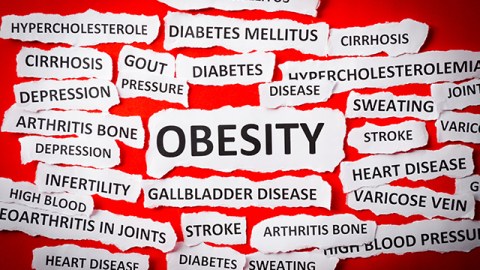Should Big Food Pay For Our Rising Obesity Costs?

Paul McDonald didn’t expect his letter to go public. The Valorem Law Group partner had queried sixteen states, asking leaders to consider investigating Big Food’s potential role in paying for a percentage of the health system’s skyrocketing obesity costs. The Chamber of Commerce got wind of this letter and made it public, setting off a national debate over food marketing, ingredient manipulation and personal responsibility.
McDonald’s premise is simple enough: if large food companies are purposefully creating addictive foods to ensure consumer loyalty, adding to the rising obesity levels in this country, they should be responsible for covering costs associated with treatment. The backlash was immediate and biting.
Comparisons to the Big Tobacco companies came first to mind. In the 1998 Tobacco Masters Settlement Agreement, major players in the tobacco industry agreed to pay $246 billion to offset health risks and diseases associated with its product. Critics of McDonald’s idea believe there is no link between tobacco and food.
On the face of it, this would appear true: you don’t need to smoke, but eating is a necessity. Smoking is a choice, and therefore if you choose to smoke, you pay the consequences. Eating falls into an entirely different category.
Yet the neural mechanisms might be similar. A 2010 study in Nature Neuroscience found that rats consumed well past their limits when offered high-calorie foods such as bacon, sausage and cake, speculating that humans, when faced with an equivalent scenario, also choose to overeat.
Harvard University Professor of Medicine, Emeritus David Blumenthal’s study, Neurobiology of Food Addiction, found a similar link between food and drug abuse. In the summary he writes
Work presented in this review strongly supports the notion that food addiction is a real phenomenon…although food and drugs of abuse act on the same central networks, food consumption is also regulated by peripheral signaling systems, which adds to the complexity of understanding how the body regulates eating, and of treating pathological eating habits.
The argument against food addiction is a tough one, waged by industry insiders who want to keep 60,000 products on American shelves. The real question, however, is: are food companies purposefully producing addictive foods that change our neurobiology? If so, should they be held economically accountable?
American obesity costs are currently $147 billion per year. The CDC estimates that 35.7% of adults and 17% of children ages 2-19 are obese—a number that has risen dramatically over the last two decades. A joint report between Trust for America’s Health and the Robert Wood Johnson Foundation estimates that 44% of American adults will be obese by 2030. The report predicts that will add between $48-66 billion to our costs, some of which is paid for by taxpayers.
Yet food is such an emotional topic. For example, when informing someone that I’m vegan, they immediately let me know why they could never do such a thing (I didn’t ask) or that it’s ‘wrong’ for them, and sometimes by extension, me (last week’s annual blood work shows me in perfect shape).
Michael Bloomberg was laughed at for suggesting that New York City businesses limit soda serving sizes. It was never a perfect plan, but his public shaming shows how closely we equate food with ‘freedom.’ The problem is, there is no freedom in addiction. As the Nature Neuroscience study showed above, rats and humans alike will overeat (or eat less healthy food options) even if they know better.
Hence the magic bullet at the center of McDonald’s letter: a precise combination of fat, sugar and salt that keeps us craving more. As NY Times reporter and author of Salt Sugar Fat: How the Food Giants Hooked Us Michael Moss said in an interview
These are the pillars of processed foods, the three ingredients without which there would be no processed foods. Salt, sugar and fat drive consumption by adding flavor and allure. But surprisingly, they also mask bitter flavors that develop in the manufacturing process. They enable these foods to sit in warehouses or on the grocery shelf for months. And, most critically to the industry’s financial success, they are very inexpensive.
Inexpensive to companies, not to consumers. Paul McDonald is striking an important nerve in how we manufacture, distribute and consume food in our country. There will be a lot of resistance and debate from both industry and citizens. But if we don’t begin this conversation now, our national and mental health is only going to continue to decline.
Image: Aliwak/shutterstock.com




